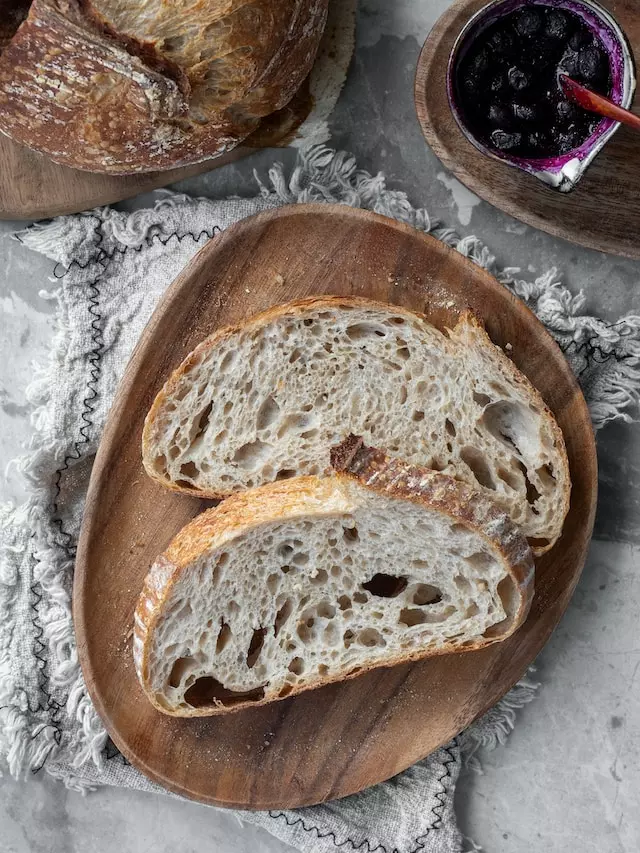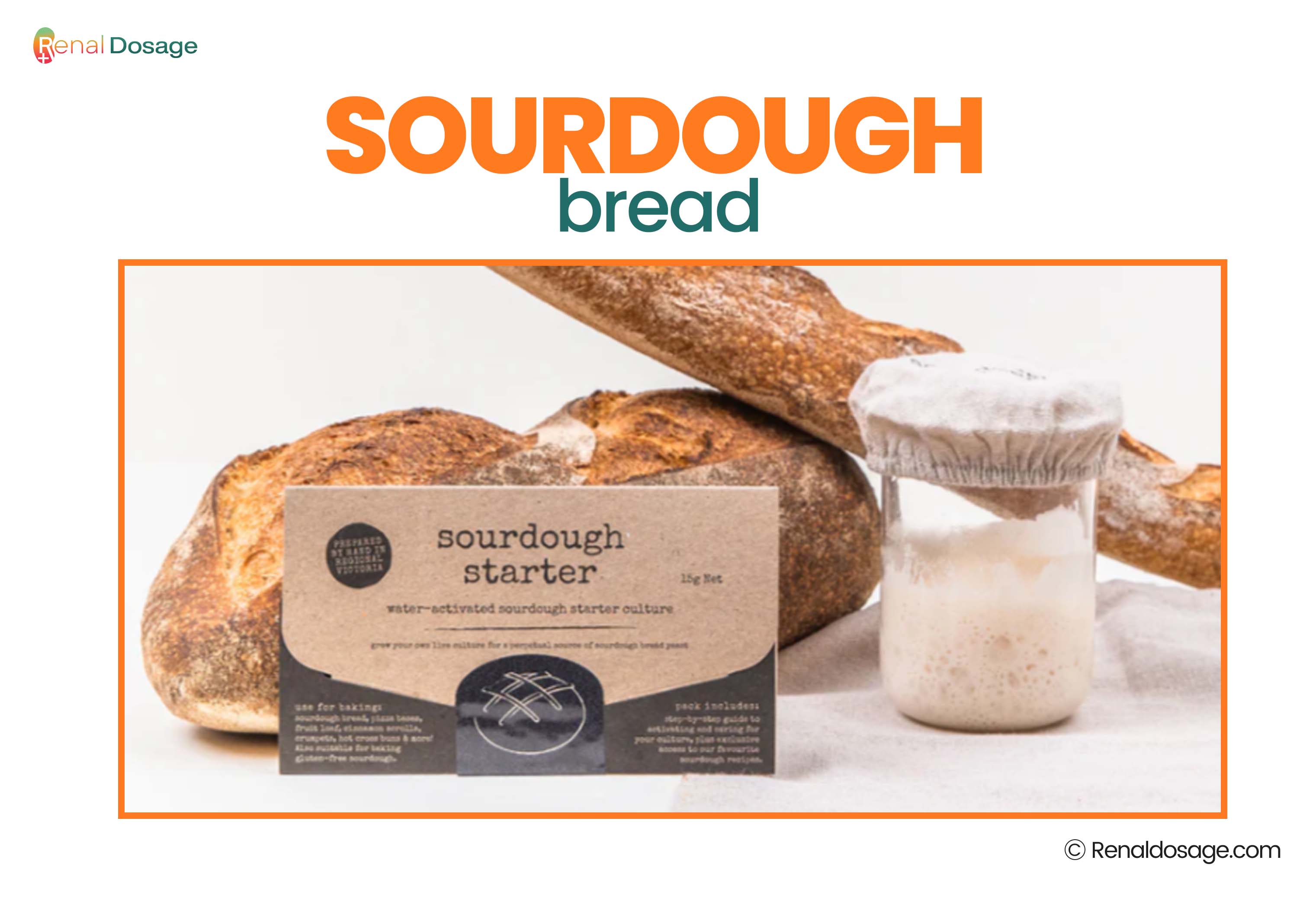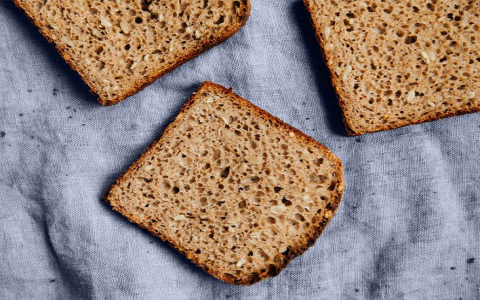If you’ve been scrolling through social media lately, you’ve probably noticed sourdough bread everywhere—from homemade loaves to trendy cafes. But what exactly is sourdough bread, and why is it getting so much attention? Simply put, sourdough is a type of bread made through natural fermentation using wild yeast and friendly bacteria. This process gives it that unique tangy flavor and chewy texture that so many people love.
Now, here’s the big question: Is sourdough bread part of the Mediterranean diet? The Mediterranean diet is famous for being heart-healthy, fresh, and balanced. So, can you enjoy your favorite sourdough loaf and still stick to this popular eating plan? Let’s explore some surprising nutritional facts that might change your mind about sourdough!
What Makes Sourdough Bread So Special? The Magic of Fermentation
Fermentation is what sets sourdough apart from regular bread. Instead of using commercial yeast, sourdough relies on a natural starter made from just flour and water that captures wild yeast and good bacteria.

Why does this matter? Well, fermentation:
- Makes bread easier to digest: It breaks down gluten and starches, so sourdough is gentler on your stomach compared to regular bread.
- Supports gut health: The friendly bacteria in sourdough act like probiotics, which are great for your digestion and immune system.
- Boosts nutrient absorption: Fermentation helps your body absorb important minerals like magnesium, zinc, and iron more easily.
Here’s a cool fact: fermentation can reduce compounds called phytates by up to half. Phytates usually block minerals from being absorbed, so sourdough helps you get more nutrients from your bread.
Nutritional Face-Off: Sourdough Bread vs. Regular Bread
Let’s compare sourdough with regular white bread and whole grain bread to see how they stack up, especially for those following the Mediterranean diet.
| Nutrient | Sourdough Bread | White Bread | Whole Grain Bread |
|---|---|---|---|
| Calories (per slice) | 90-100 | 80-90 | 100-110 |
| Fiber (grams) | 1-2 | 0.5-1 | 2-3 |
| Protein (grams) | 4-5 | 2-3 | 4-5 |
| Glycemic Index | (low-medium) | 70+ (high) | 50- (low) |
What does this mean for you?
- Lower glycemic index: Sourdough causes a slower, steadier rise in blood sugar compared to white bread, which is great for keeping your energy balanced.
- More protein: It has a bit more protein, which helps you feel full and supports muscle health.
- Decent fiber: While not as much as whole grain bread, sourdough still offers a good amount to aid digestion and heart health.
How Sourdough Fits Into Mediterranean Diet Principles
The Mediterranean diet is all about whole, minimally processed foods like fresh fruits, veggies, nuts, legumes, olive oil, fish, and whole grains. Bread is definitely part of the picture, but quality counts.
Here’s why sourdough fits right in:
- Simple ingredients: Traditional sourdough is just flour, water, salt, and starter—no additives or preservatives.
- Heart-healthy: Its lower glycemic index and fiber content help manage cholesterol and blood sugar.
- Perfect pairing: Sourdough goes great with olive oil, fresh tomatoes, or alongside a Mediterranean salad.
Surprising Health Benefits of Sourdough Bread You Might Not Know
Ready for some surprising perks? Here are five reasons sourdough is a great pick for your Mediterranean diet:
- Helps control blood sugar: Thanks to its slow fermentation, sourdough won’t cause big blood sugar spikes.
- May reduce inflammation: Fermented foods like sourdough can help lower inflammation, which is important for heart and brain health.
- Easier for gluten sensitivity: While not gluten-free, sourdough’s fermentation breaks down some gluten, making it easier to digest for some.
- Rich in antioxidants: The fermentation process boosts antioxidants that protect your cells.
- Supports weight management: The fiber, protein, and low glycemic index help keep hunger in check.
How to Pick the Best Sourdough Bread for Your Mediterranean Diet
Not all sourdough breads are created equal. Here’s how to choose the healthiest options that fit your lifestyle:
- Simple ingredients: Look for bread made with just flour, water, salt, and starter—no added sugars or preservatives.
- Whole grain is best: Whole wheat or rye sourdough has more fiber and nutrients than white sourdough.
- Go artisan or organic: These breads often use traditional methods and higher-quality ingredients.
- Check the crust: A thick, chewy crust usually means good fermentation and flavor.
- Avoid pre-packaged loaves: Freshly baked or bakery-sourced sourdough is usually better.
Easy Mediterranean-Style Ways to Enjoy Sourdough Bread
Want to enjoy sourdough without straying from the Mediterranean diet? Here are some tasty and simple ideas:
- Olive oil dip: Pour some extra virgin olive oil, sprinkle with sea salt, and add fresh herbs like oregano or rosemary.
- Avocado & tomato toast: Mash avocado, top with cherry tomatoes, a drizzle of olive oil, and a pinch of sea salt.
- Hummus and veggie sandwich: Spread hummus, add cucumbers, spinach, and roasted red peppers.
- Mediterranean bruschetta: Top toasted sourdough with diced tomatoes, garlic, basil, and a splash of balsamic vinegar.
- Egg and spinach breakfast toast: Sauté spinach, top with a poached egg on sourdough, and sprinkle with feta cheese.
Final Thoughts: Can You Have Sourdough Bread on the Mediterranean Diet? Absolutely!
Sourdough bread isn’t just tasty—it’s a nutritious, gut-friendly choice that fits perfectly into the Mediterranean diet. Thanks to its natural fermentation, lower glycemic index, and rich nutrients, sourdough offers some surprising health benefits that make it a smart addition to your meals.

So next time you’re wondering if you can enjoy that crusty, tangy loaf, the answer is a confident yes! Just remember to pick whole grain, minimally processed sourdough and pair it with plenty of fresh Mediterranean ingredients for the best experience.



